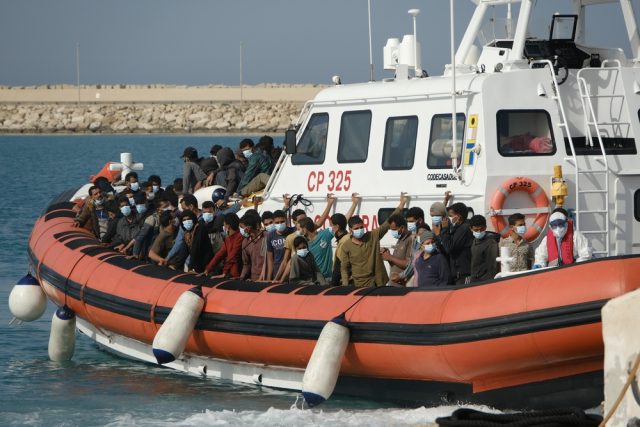
Between June 6 and 9, all the Member States of the European Union are called to the elections to decide on a new, or perhaps not, composition of the European institutions. Polarization, the emergence of new parties, the economic crises and the wars threatening the Union’s borders will undoubtedly be the main issues that will determine the election results in all the Member States.
There is, however, an issue that seems to be neglected by European rulers, but which is certainly not a minor issue for citizens. Immigration, both legal and illegal, has become a point of contention among European society; from indifference to it, to outright condemnation of closed border attitudes, to the well-known open-door policy.
In 2015, more than one million migrants and refugees arrived on European soil, and it can be said that, from that moment of tension for the leaders of the Union, migration policies became a matter of general interest. The most affected countries, mainly from the south such as Spain or Italy, were the main countries that requested a fair and balanced regulation for the rest of the countries of the European Union.
It is clear that the Union’s migration policies have not been effective in achieving a cohesive, regulated and fairly controlled flow between States. Now, given these circumstances, migration policies continue to be a point of debate, so much so that the discussion has shifted towards whether the ownership of this policy should be changed in favor of the Member States and, therefore, to the detriment of the European Union.
A recent survey carried out by the European Conservatives and Reformists (ECR) Party on migration issues and the future of the European Union already reflects an absolute division. Forty-one percent of the 5,000 respondents advocate keeping the EU as the main actor in deciding migration policies, while practically the other half, 40%, decide to give greater legislative importance to the Member States about migration control. However, when we look at the segmentation data by political party and by geographical area, there are two pieces of information that shed light on the European reality in terms of migration.
On the one hand, European People’s Party voters and European socialist voters hold clear positions in favour of the EU and its migration regulation. This is also the majority opinion in Spain and Germany, according to the survey, something that fits with the electoral trend in these countries, which throughout their history has fluctuated between the EPP and the S&D. In other territories, however, there is a clear trend towards change. The most representative case is undoubtedly Italy, where all polls point to Fratelli d’Italia, the Italian party of the ECR group, winning the European elections in June.
This victory would surely have much to do with the migration policy of Giorgia Meloni, leader of the Italian party and president of the ECR Party, which has meant a turning point in the management of illegal immigration and, therefore, a decrease in the social uncertainty of Italian citizens. Such were, in fact, her political promises during the election campaign that finally ended with her as the winning candidate.
One may therefore wonder how it is possible that a country like Spain, which has suffered similar consequences of illegal immigration as Italy (lack of territorial cohesion, deterrence of western values or pressure from the southern border countries) can continue to trust those representatives who have maintained an open-door position or lack of control over migration issues.
However, not all citizens in Spain pretend to be unaffected by immigration. Vox, a Spanish conservative party, managed to become the fourth political force in the elections in Catalonia, an Autonomous Community of Spain, in 2021. Despite being a territory with a large number of pro-independence voters, immigration was a mobilising and decisive factor for the enormous growth of VOX during the last elections.. Thus, the discourse defended by its candidate, Ignacio Garriga, on a greater and better control of the immigrant population and on the defense of the own, made VOX overcome the traditional center-right party in Catalonia, Partido Popular.
In the light of events, it seems clear that there is a change in the trend of the European vote which, in the light of events, is influenced, among other things, by the migration issue. A change that reflects the fact that, although for the European institutions border control and security seem to be on the back burner, citizens are demanding greater guarantees of security and protection of Western values, national security and the preservation of the welfare system. It is therefore up to the next European Parliament and the future Commission to maintain and safeguard the hard-won values of the European Union.



 Subscribe
Subscribe